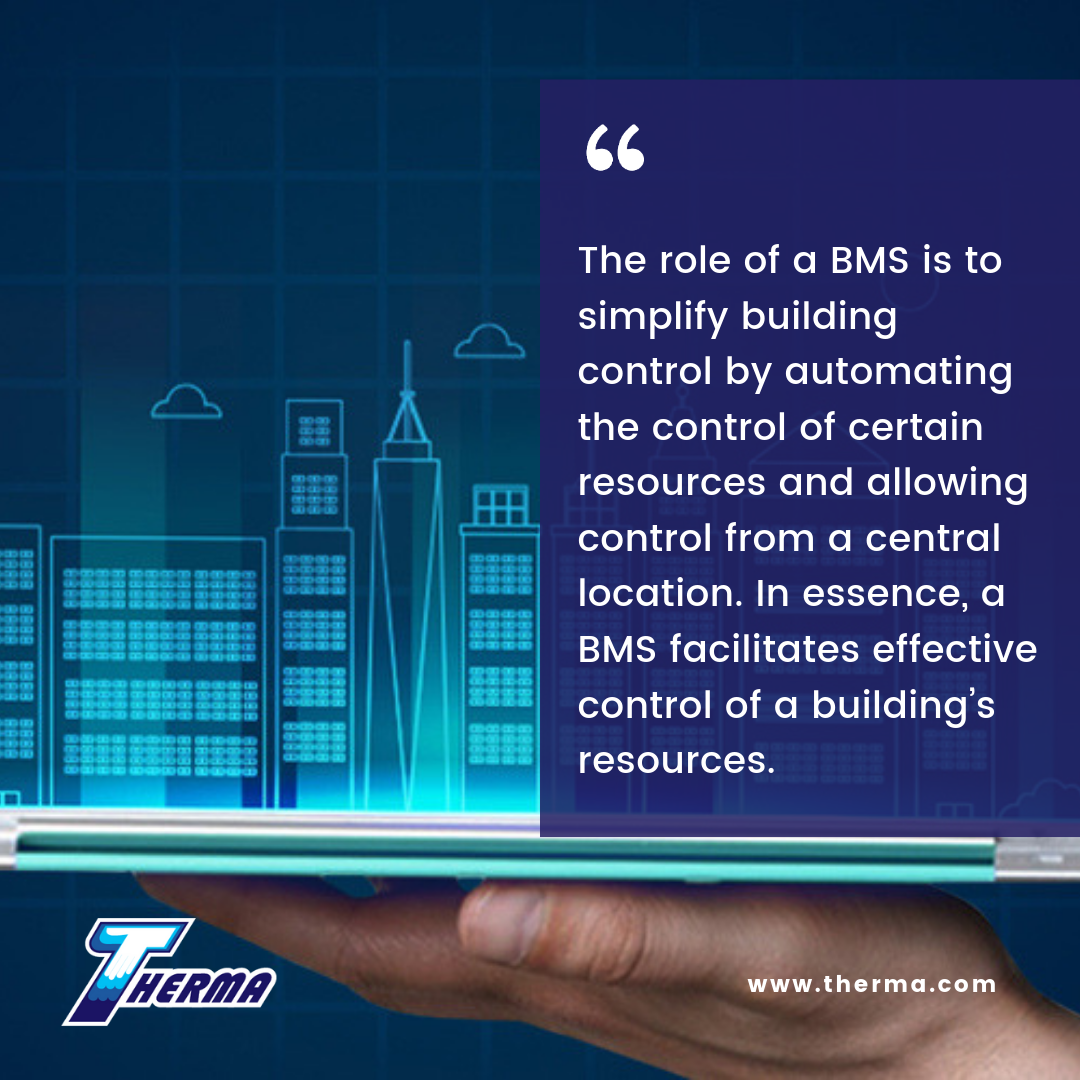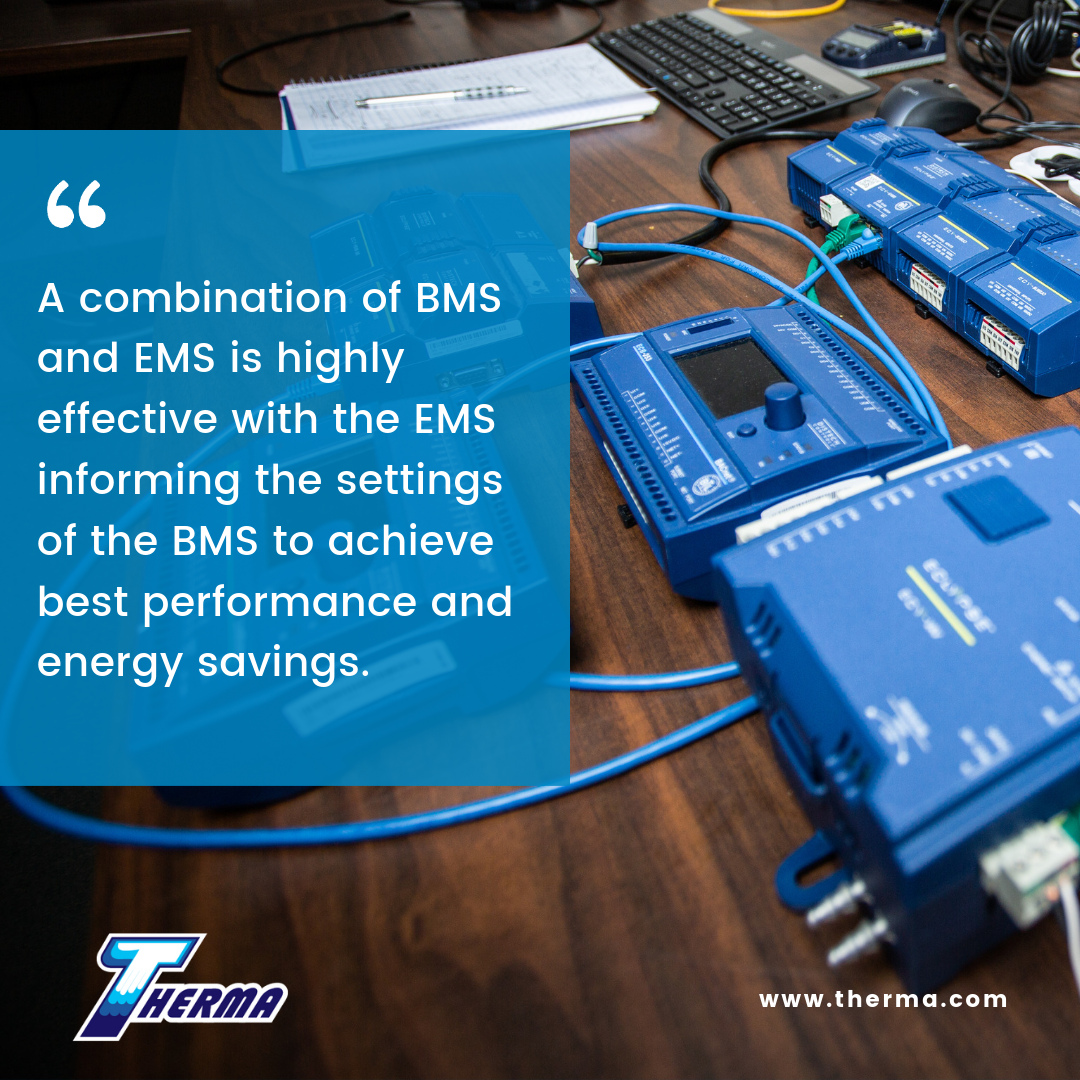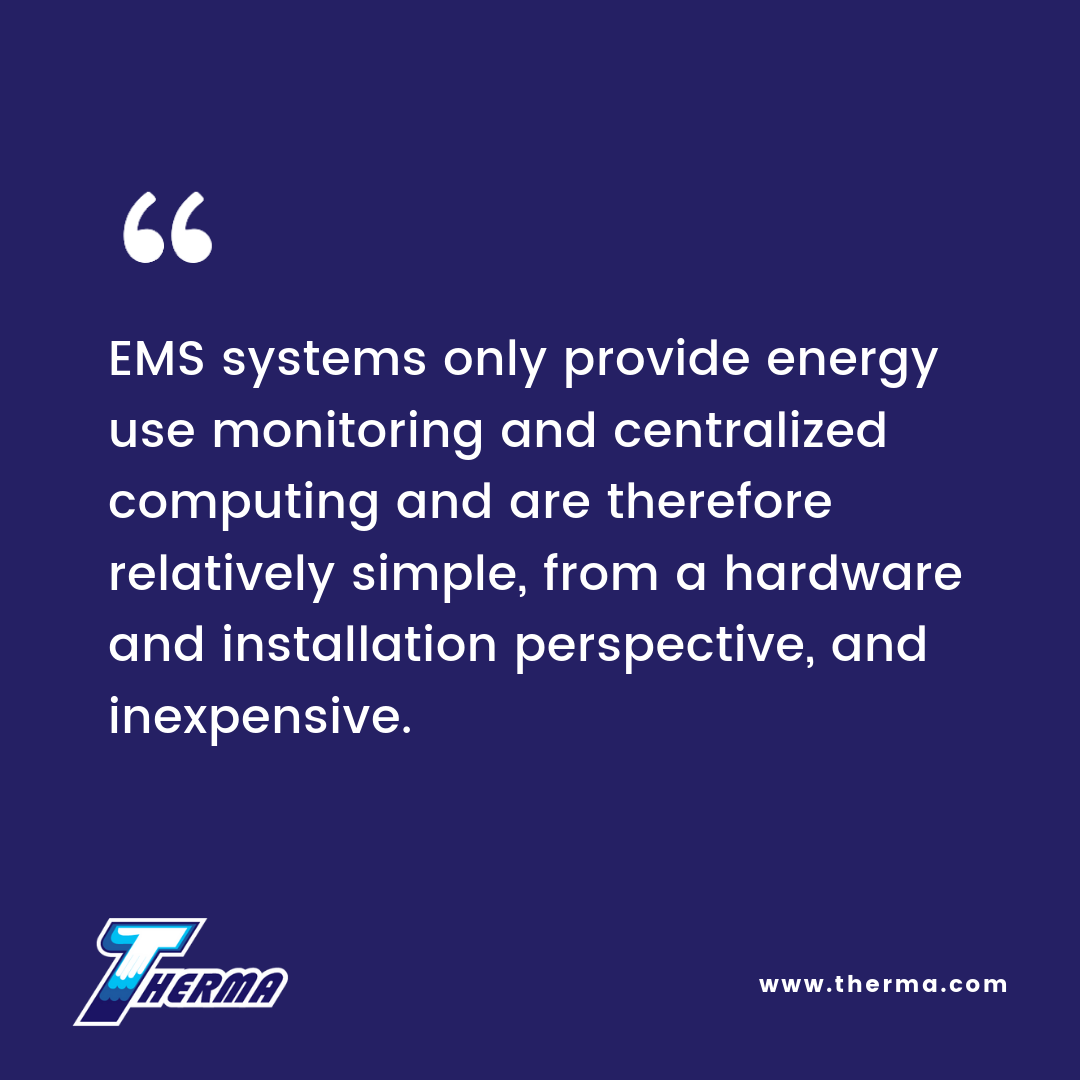Smart systems incorporating internet-of-things (IoT) type technology are changing the way commercial buildings are designed, operated and managed. These systems make use of networks of components that allow for centralized control and monitoring of dissimilar building systems. Understanding the differences between common smart building systems is important for choosing the best system for a given facility.
BMS, BAS and EMS – Building System Definitions and Differences
Building Management or Automation Systems (BMS or BAS) are combinations of hardware and software that allow for automated control and monitoring of various building systems such as HVAC systems, lighting, access control and other security systems. The role of a BMS is to simplify building control by automating the control of certain resources and allowing control from a central location. In essence, a BMS facilitates effective control of a building’s resources.

BMS systems typically include some kind of monitoring of system performance (e.g. HVAC energy consumption) in real time. The system performance information is available for use in decision making relating to overall building performance and energy efficiency, but the BMS plays no role in this process apart from measuring performance.
Building Energy Management Systems (EMS) differ from BMS systems in that they focus on efficient building operation through monitoring of energy usage and processing of energy consumption data to assist in decision making and optimization of building energy efficiency. An EMS does not offer any control or automation functionality of its own, it collects and analyses building energy consumption data and provides detailed reports and recommendations for optimizing energy efficiency (minimizing energy use and maximizing cost savings).
Which system is best for my facility?
Commercial facilities stand to benefit from the use of BMS and / or EMS systems, with the choice of “best” system largely depending on specific facility economics and needs. Each system on its own offers opportunities to improve building energy efficiency and resource use effectiveness.
Automation of systems using a BMS can result in energy savings through effective use of systems only when required (automatic turning on / off of HVAC systems and lighting for example), while the detailed information provided by an EMS can assist facility managers to understand and optimize energy use. A combination of BMS and EMS is highly effective with the EMS informing the settings of the BMS to achieve best performance and energy savings.

BMS systems are relatively complicated and can be expensive due to the hardware required to achieve remote system control and monitoring. As a result these systems are best suited to large facilities where any energy savings quickly accumulate to measurable financial benefits. In many facilities BMS systems are applied to only a few building resources (typically the HVAC system which is often the largest consumer of energy) to reduce purchase and installation costs while still providing some energy consumption benefits. For smaller facilities the cost of a BMS of any kind is often prohibitive.
Smaller facilities can, however, benefit from the relatively inexpensive EMS systems without BMS functionality. EMS systems only provide energy use monitoring and centralized computing and are therefore relatively simple, from a hardware and installation perspective, and inexpensive. The data and reports provided by an EMS can assist facility managers to configure a building’s systems manually for lowest energy consumption.

By Michael Owen, PhD
Michael is a mechanical engineer working in academia. His research encompasses various aspects of fluid dynamics and heat transfer with a strong emphasis on industrial heat exchangers.
Sources:
- https://www.hometoys.com/article/2016/10/bas-or-ems-which-is-right-for-your-facility/35383
- https://nayaenergy.com/difference-between-energy-management-system-and-building-management-system/
- https://controlyourbuilding.com/blog/entry/the-ultimate-guide-to-building-automation
- https://www.i-scoop.eu/building-management-building-management-systems-bms/







